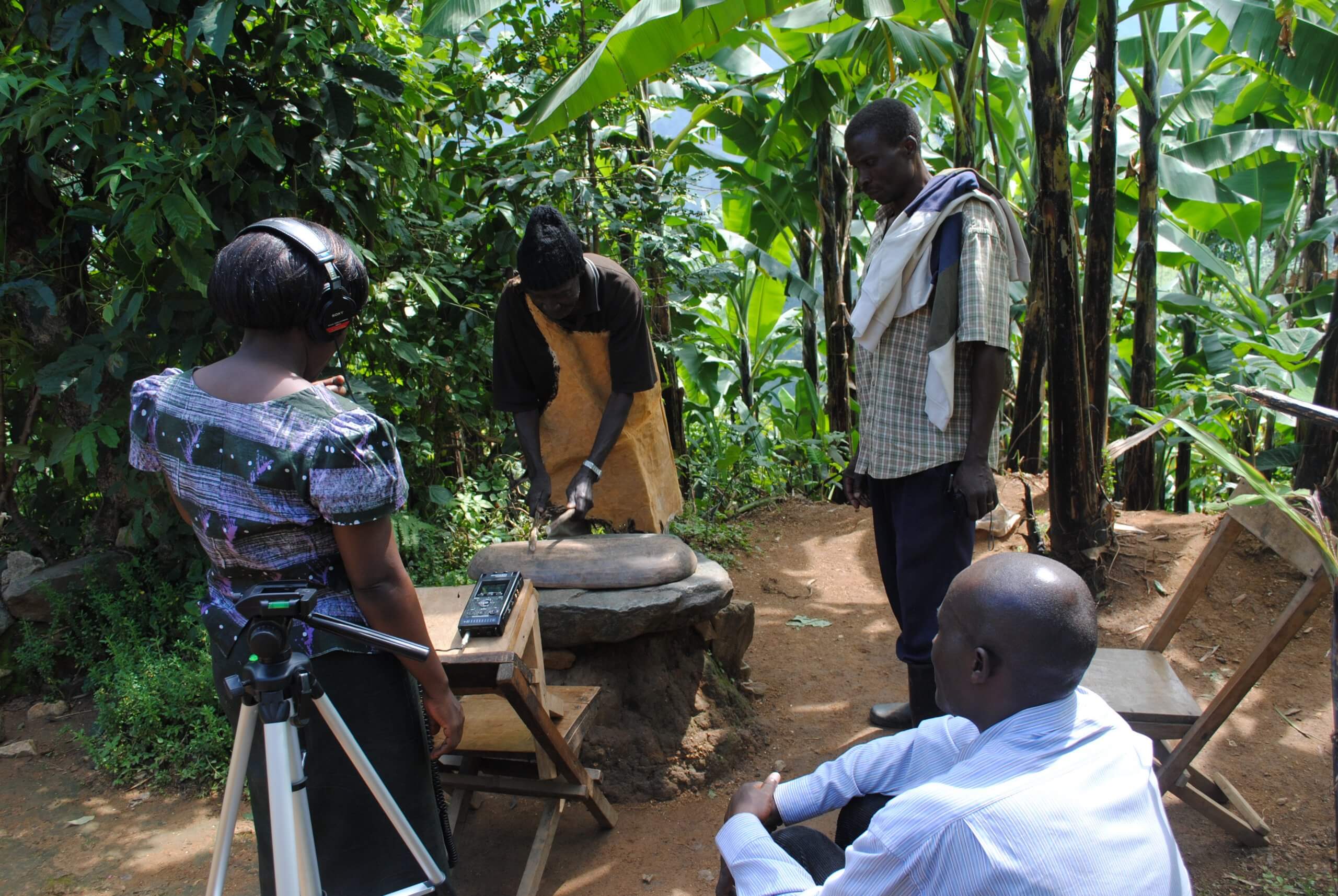Lecture by Sylvia Antonia Nannyonga-Tamusuza
Makerere University
Current scholarship on audio-visual archives established during the colonial times would tend to call for a dialogue on colonializing “indigenous” music. However, in the context of the Klaus Wachsmann audio collection at Makerere University Klaus Wachsmann Audio-visual Archive (MAKWAA), such narrative would be incomplete; this collection also participates in decolonizing this music. In this presentation, I examine how on the one hand, this collection participated in colonizing the “indigenous” music of the people of Uganda, and yet on the other, it can be used in defining some “indigenous” music of the past and redefining Uganda’s music of the present into the future. Housed in an academic institution, MAKWAA provides a space for students, researchers, and music creators to dialogue on Uganda’s past, present, and future soundscape.
Dr. Sylvia Antonia Nannyonga-Tamusuza is Associate Professor of Music and Head of Performing Arts and Film Department at Makerere University. Nannyonga-Tamusuza is the founder and Curator of the Makerere University Klaus Wachsmann Audio-visual Archive (MAKWAA). She has published on music repatriation and archiving, popular music, Catholic Church music, school music competitions, dance as music, sexuality in music and dance, politics and gender in music, the interface between ethnomusicology and music education, and identities in diasporic music. Her publications include the book Baakisimba: Gender in Music and Dance of the Baganda People of Uganda (Routledge, 2005), as well as many articles in journals and edited volumes. She is co-editor of Ethnomusicology in East Africa: Perspectives from Uganda and Beyond (Fountain 2012). Her recent publication is on how Ugandan women use ring-tunes and caller-tunes to mediate family conflicts and negotiate peace. She has done a number of archival studies and presentations based on the Makerere University Klaus Wachsmann Music collections and her current research is on the decolonization of “African” music education and the role of audio-visual archives in this project.
Part of the Global Archiving and Instrument Curation Series and the Nazir Ali Jairazbhoy Colloquium Series, sponsored by The UCLA Herb Alpert School of Music Department of Ethnomusicology, The UCLA Ethnomusicology Archive, and The World Music Center at UCLA, with support from the Dean of The UCLA Herb Alpert School of Music.
